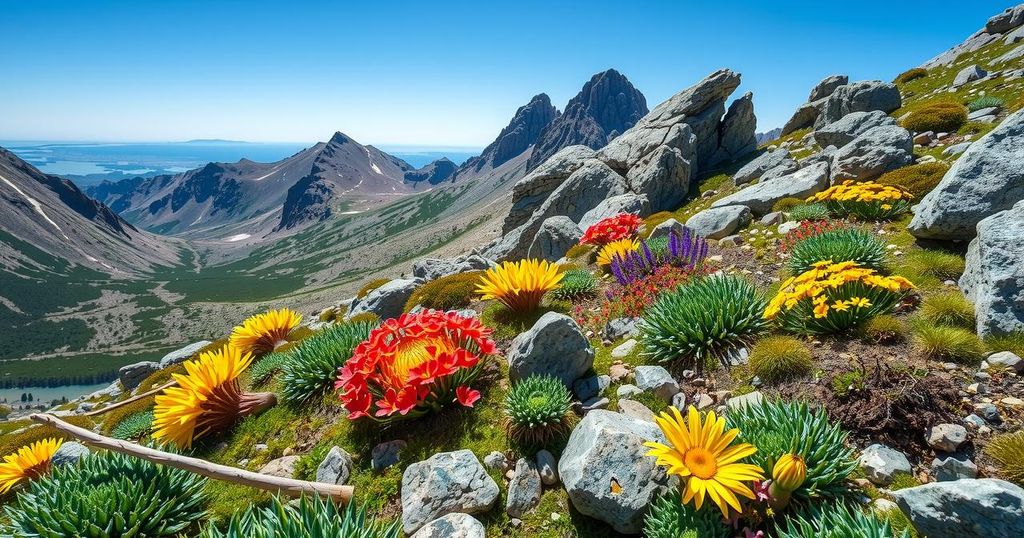Emily Griffoul, from the Betty Ford Alpine Gardens, is engaged in a mission to identify and collect seeds from alpine plants in the Rocky Mountains, which are endangered by climate change. By confirming the sustainability of local populations using historical data, she ensures that seed collection does not threaten these unique plants. Her work is critical for conservation and the ecological health of alpine environments.
Emily Griffoul, associated with the Betty Ford Alpine Gardens in Colorado, actively searches the Rocky Mountains for distinctive alpine plants that have adapted to the harsh environments characterized by cold winds, strong sunlight, and significant snowfall. According to Griffoul, “These alpine plants … they’re just spectacular both visually and from, like, an evolutionary perspective.” Their adaptations include deep roots anchoring them to loose rocks and fine hairs offering wind protection.
Despite their remarkable adaptations, numerous alpine species face peril due to climate change, which is causing a warming effect in their mountainous habitats. This phenomenon enables lower-elevation plant species to invade the higher altitudes, posing a threat to the native alpine flora. In response, Griffoul and fellow researchers are undertaking the task of collecting seeds from these plants to safeguard their genetic diversity and to mitigate the risk of extinction.
Prior to collecting seeds, it is essential for Griffoul to ascertain that sufficient populations of the target plants exist in their natural habitats to prevent any risk to the species. This process often presents complications, particularly when plant populations are minimal. To identify potential locations for the plants, she leverages historical data and photographs provided by volunteers. Griffoul describes this effort as, “the best scavenger hunt in the world.”
Upon locating adequate specimens, she proceeds with seed collection, which contributes to the conservation efforts of the garden and assists in ensuring the survival of alpine flora for future generations. The work not only preserves genetic material but also enhances the diverse collection of plants housed within the garden, supporting ecological stability in these fragile environments.
Emily Griffoul’s work at the Betty Ford Alpine Gardens illustrates the pressing need to conserve alpine plants amidst the challenges posed by climate change. By using historical data and community resources, she methodically searches for these endangered species, aiming to collect seeds responsibly. Her endeavors not only contribute to genetic preservation but also inspire a greater appreciation for the unique alpine ecosystems.
Original Source: yaleclimateconnections.org






